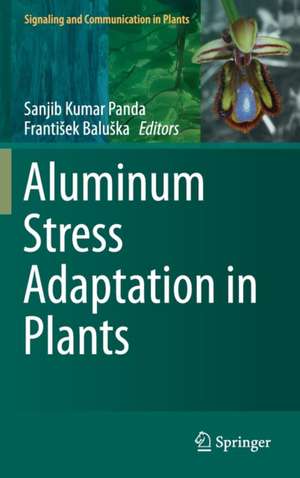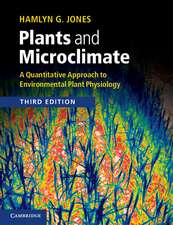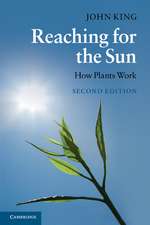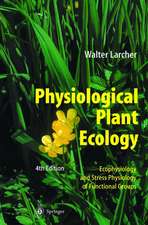Aluminum Stress Adaptation in Plants: Signaling and Communication in Plants, cartea 24
Editat de Sanjib Kumar Panda, František Baluškaen Limba Engleză Hardback – 16 noi 2015
| Toate formatele și edițiile | Preț | Express |
|---|---|---|
| Paperback (1) | 639.90 lei 6-8 săpt. | |
| Springer International Publishing – 23 aug 2016 | 639.90 lei 6-8 săpt. | |
| Hardback (1) | 570.73 lei 38-44 zile | |
| Springer International Publishing – 16 noi 2015 | 570.73 lei 38-44 zile |
Din seria Signaling and Communication in Plants
- 15%
 Preț: 641.71 lei
Preț: 641.71 lei - 24%
 Preț: 793.50 lei
Preț: 793.50 lei - 24%
 Preț: 1208.97 lei
Preț: 1208.97 lei - 18%
 Preț: 1118.13 lei
Preț: 1118.13 lei - 24%
 Preț: 783.55 lei
Preț: 783.55 lei - 18%
 Preț: 1111.53 lei
Preț: 1111.53 lei - 18%
 Preț: 998.34 lei
Preț: 998.34 lei - 18%
 Preț: 1545.57 lei
Preț: 1545.57 lei - 18%
 Preț: 1547.81 lei
Preț: 1547.81 lei - 18%
 Preț: 951.29 lei
Preț: 951.29 lei - 24%
 Preț: 796.86 lei
Preț: 796.86 lei - 18%
 Preț: 942.63 lei
Preț: 942.63 lei - 18%
 Preț: 1219.77 lei
Preț: 1219.77 lei - 18%
 Preț: 954.31 lei
Preț: 954.31 lei - 18%
 Preț: 953.20 lei
Preț: 953.20 lei - 18%
 Preț: 1388.05 lei
Preț: 1388.05 lei - 18%
 Preț: 956.50 lei
Preț: 956.50 lei - 18%
 Preț: 942.63 lei
Preț: 942.63 lei - 18%
 Preț: 943.73 lei
Preț: 943.73 lei - 24%
 Preț: 1053.41 lei
Preț: 1053.41 lei - 18%
 Preț: 941.48 lei
Preț: 941.48 lei - 18%
 Preț: 943.57 lei
Preț: 943.57 lei - 18%
 Preț: 943.43 lei
Preț: 943.43 lei - 18%
 Preț: 944.51 lei
Preț: 944.51 lei - 18%
 Preț: 945.30 lei
Preț: 945.30 lei - 18%
 Preț: 1221.07 lei
Preț: 1221.07 lei - 18%
 Preț: 944.19 lei
Preț: 944.19 lei - 18%
 Preț: 948.92 lei
Preț: 948.92 lei
Preț: 570.73 lei
Preț vechi: 713.41 lei
-20% Nou
Puncte Express: 856
Preț estimativ în valută:
109.22€ • 113.61$ • 90.17£
109.22€ • 113.61$ • 90.17£
Carte tipărită la comandă
Livrare economică 10-16 aprilie
Preluare comenzi: 021 569.72.76
Specificații
ISBN-13: 9783319199672
ISBN-10: 3319199676
Pagini: 274
Ilustrații: IX, 274 p.
Dimensiuni: 155 x 235 x 22 mm
Greutate: 0.58 kg
Ediția:1st ed. 2015
Editura: Springer International Publishing
Colecția Springer
Seria Signaling and Communication in Plants
Locul publicării:Cham, Switzerland
ISBN-10: 3319199676
Pagini: 274
Ilustrații: IX, 274 p.
Dimensiuni: 155 x 235 x 22 mm
Greutate: 0.58 kg
Ediția:1st ed. 2015
Editura: Springer International Publishing
Colecția Springer
Seria Signaling and Communication in Plants
Locul publicării:Cham, Switzerland
Public țintă
ResearchCuprins
Aluminum Signaling and Potential Links with Safener-Induced Detoxification in Plants.- Transcriptional Regulation of Al Tolerance in Plants.- Aluminum-Dependent Root Growth Inhibition as Mediated by DNA Damage Responses.- Signaling Pathways of Aluminum-induced Programmed Cell Death in Higher Plants.- Mechanisms of Hyper-resistance and Hyper-tolerance to Aluminum in Plants.- Significant Role of the Plasma Membrane Lipid Bilayers in Aluminum Tolerance of Plants.- Breeding for Al Tolerance by Unravelling Genetic Diversity in Bread Wheat.- Rice Arsenal Against Aluminum Toxicity.- The Molecular Physiology and Regulation of Aluminum Resistance in Higher Plants.- Physiological and Molecular Regulation of Aluminum Resistance in Woody Plant Species.- Diversity of Arbuscular Mycorrhizal Fungi in Acidic Soils and Their Contribution to Aluminum Phytotoxicity Alleviation.- Specificity of Ion Uptake and Homeostasis Maintenance During Acid and Aluminium Stresses.- Aluminium-Induced Inhibition of Root Growth - Roles of Cell Wall Assembly, Structure and Function.
Textul de pe ultima copertă
This book is an overview of our current understanding of aluminium toxicity and tolerance in plants. It covers all relevant aspects from molecular and cellular biology, to genetic approaches, root biology and plant physiology. The contribution of arbuscular mycorrhizal fungi to alleviating aluminium toxicity is also discussed. Over 40% of total agricultural land resources are acidic in nature, with aluminium being the major toxicant. Plant roots are particularly susceptible to aluminium stress, but much of the complex mechanism underlying its toxicity and tolerance is unknown, and aluminium stress perception in plants remains poorly understood. The diverse facets of aluminium stress adaptation covered in this book are relevant to plant biology students at all levels, as well researchers, and it provides a valuable contribution to our understanding of plant adaptation to the changing environment.
Caracteristici
Presents the latest research results on aluminum tolerance in plants Various adaptive mechanisms in plants are discussed in detail With contributions by leading scientists from all over the world





